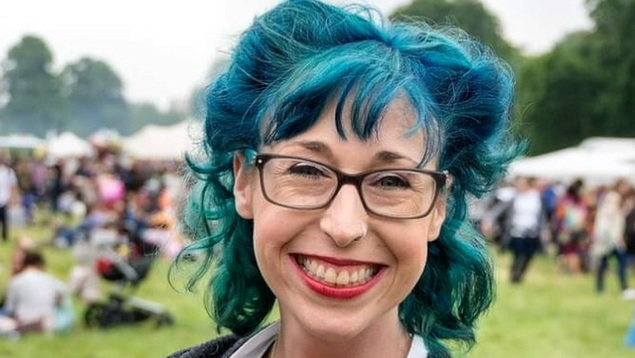Woman with paralysed stomach told she was anorexic
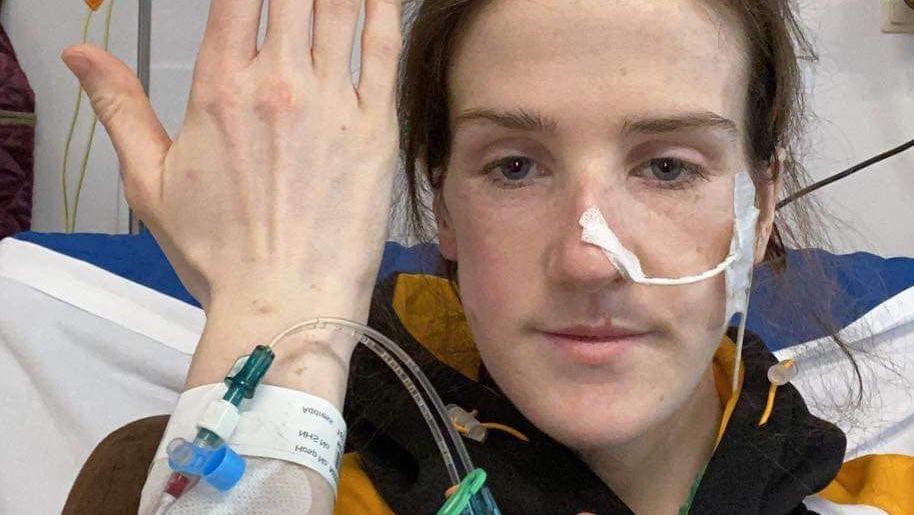
Luned said she knew she did not have anorexia but "no one took her seriously"
- Published
A woman lived with a paralysed stomach for three years and was told she might die after doctors wrongly diagnosed her with anorexia.
Luned Davies, 23, has gastroparesis, external which affects the nerves in her stomach and means she cannot digest her food properly - which led to her dropping down to just five stone (31.7kg).
Ms Davies, from Banwen, Neath, said she "knew" she did not have an eating disorder, but claims nobody took her concerns seriously after she first started experiencing her symptoms in 2020.
Swansea Bay health board said it can sometimes take "a while" to diagnose rare conditions.
Mum can't register baby at GP after boundary change
- Published13 August 2024
Baby born in cinema foyer leaves family in disbelief
- Published13 August 2024
'I was crying in excruciating pain every day' Video, 00:01:03
- Published24 March 2024
Ms Davies said she was referred to an eating disorder specialist in 2020 despite her doubts over her diagnosis of anorexia.
"They kept telling me I had an eating disorder, but I knew it wasn’t this and that there was something wrong with me," she said.
"I was losing weight, and I didn't want any food. I felt full all the time and knew something was wrong.
"I went back and forth to the doctor, had blood tests but nobody took me seriously."
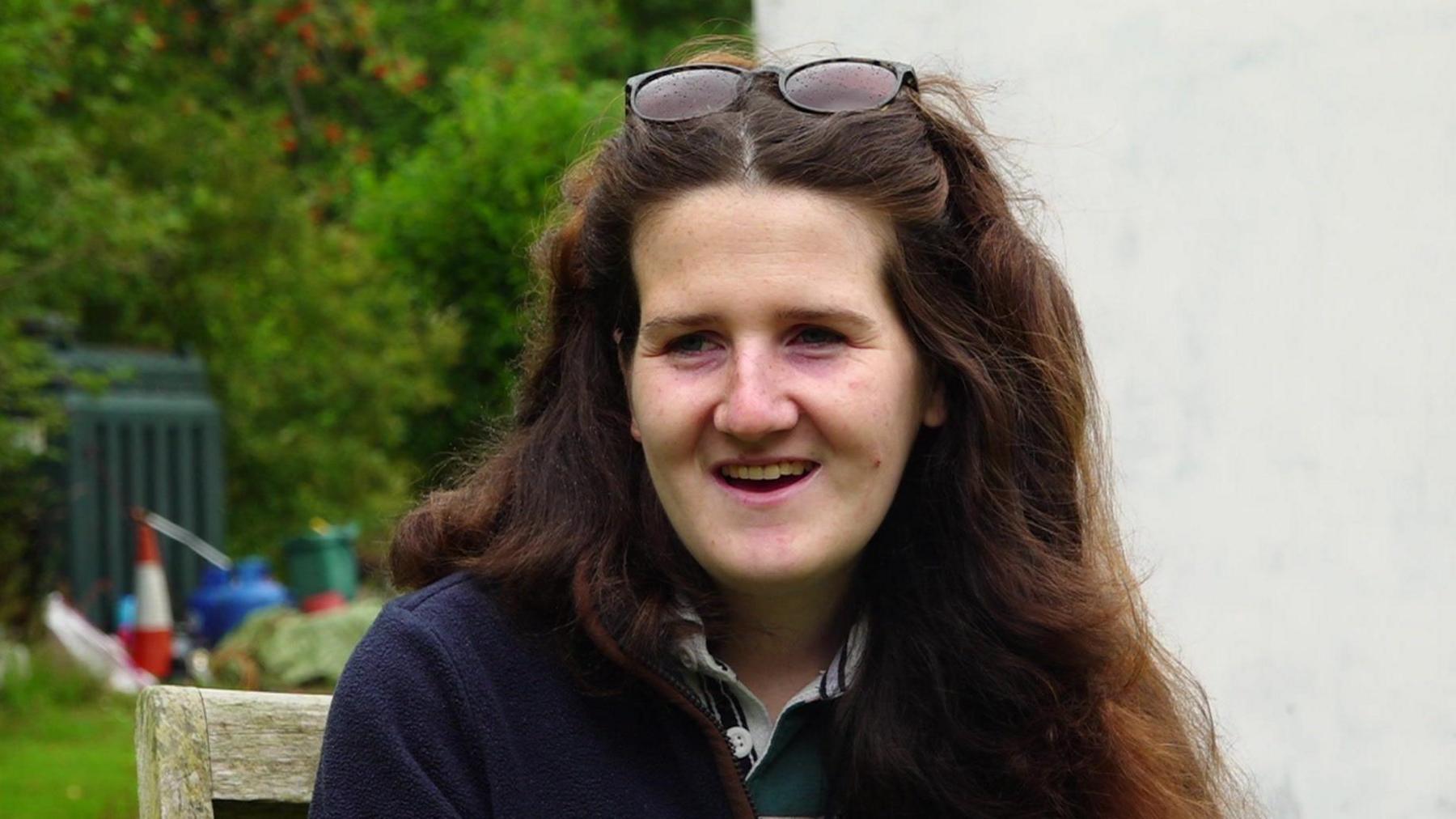
"The worst thing was seeing how it impacted my family," says Luned
Ms Davies also received tests from a private hospital, but after no change in diagnosis by August 2022 and having lost so much weight, she was told she may die.
"I was five stone, you could see my bones. I looked disgusting."
"I couldn’t walk, I couldn't look after myself. My mam had to put me in the shower, wash me, pick me up off the toilet.
"You could see every bone in my body and people thought I wanted to be like that.
"I didn't want to look like that, people thought I had an eating disorder, anorexia."
"Nobody knew what was happening because they could see me eating, but then I was being sick."
"They told me I was going to die, and I wouldn't live through this."
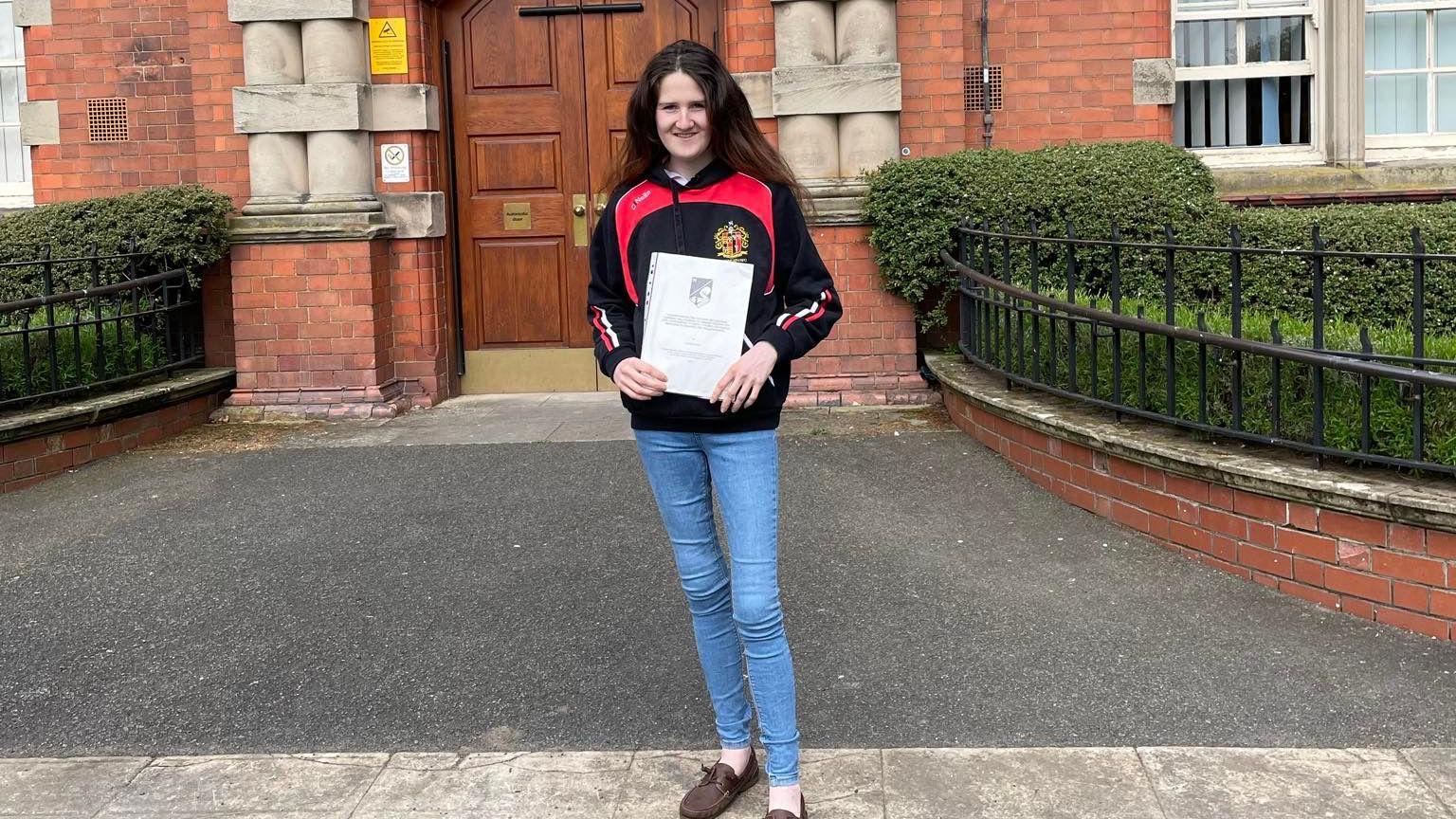
Luned wrote her university dissertation on how farmers could be encouraged to produce food for people with health-related dietary conditions
Ms Davies said it took up to three years to receive a diagnosis of gastroparesis, but before then it had been difficult to deal with people questioning her symptoms.
"People kept telling me there was nothing wrong, and it was all in my head," she said.
She added that the hardest thing was seeing the strain on her family.
"For me the worst thing was seeing mam and dad, the family, suffering, and seeing how I had impacted their lives.
"I often said I didn't want to be here, but I was never not going to do anything and affect my family's life even more."
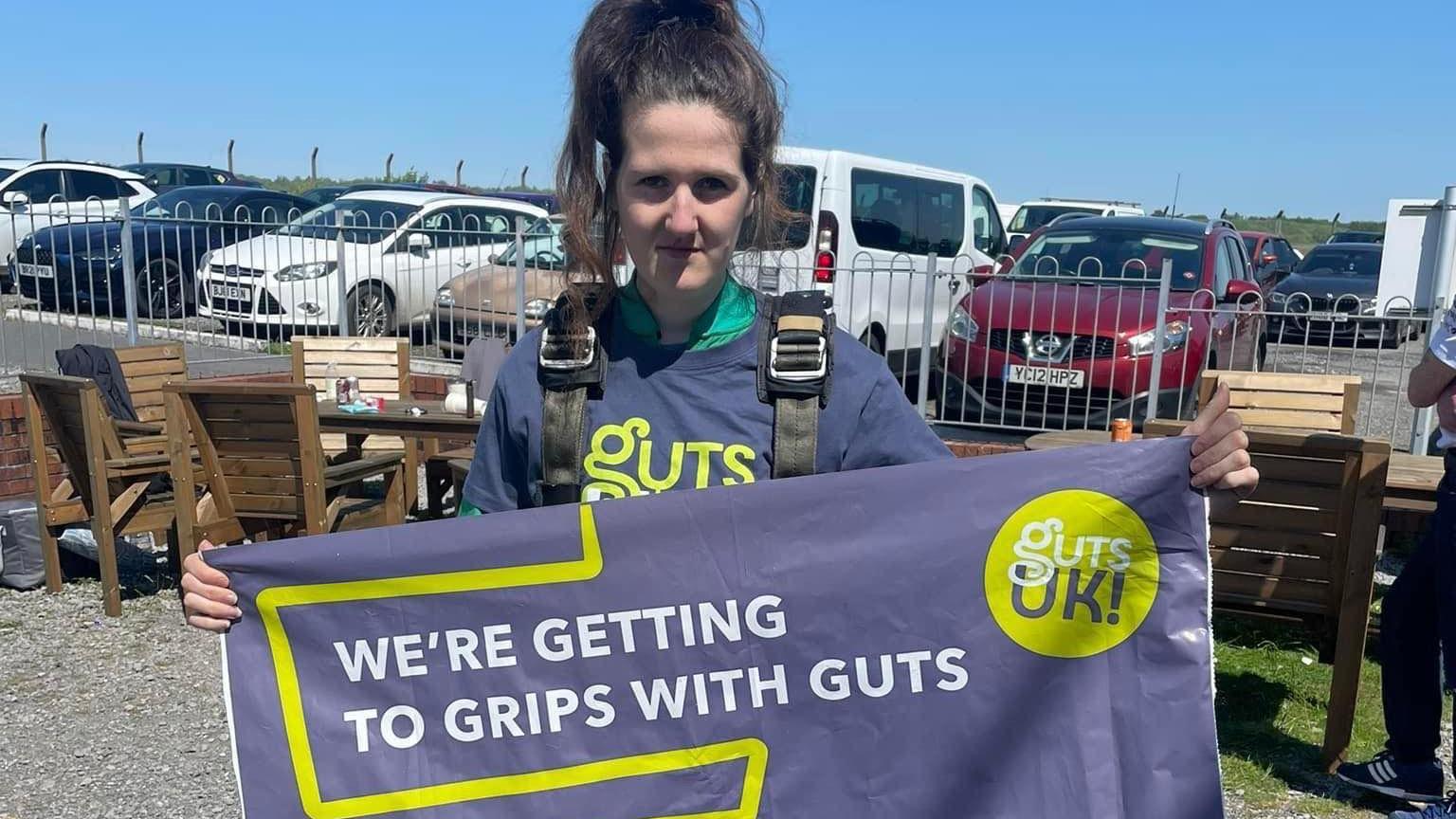
Luned raised £1,700 for Guts UK in May, which supports people with gastroparesis
A combination of tablets now helps Luned to manage her symptoms.
"I am in pain all day every day but I have to carry on. I have a life, and I need to make the most of it," she said.
"If I don't do anything, I will be stuck in bed all day every day."
She said she hopes that sharing her story will help raise awareness of the condition for others who may be affected by it.
Gastroparesis symptoms
Symptoms for gastroparesis, external can vary and start after eating food, they may include:
feeling full sooner than usual - you may be unable to finish meals
feeling sick and being sick
tummy pain
heartburn
bloating
If you've had these symptoms for a while, you may also be losing weight.
Source: NHS
According to dietician Gwawr James, those living with the condition must adjust their diet.
"Once the nerves in the stomach have been damaged, there is no cure," she said.
"Traditionally we tell people they should eat three main meals a day - breakfast, lunch and dinner."
"But in this case, we recommend eating four to six smaller meals, which doesn't put too much pressure on the stomach at the same time."
Swansea Bay health board said: "Raising awareness of rare diseases is a positive way to help others.
"It can sometimes take a while to diagnose a rare condition, particularly when symptoms may suggest other more common conditions, as these would normally be investigated in the first instance.
"We are happy to discuss any queries the patient may have directly with her."
If you've been affected by issues in the report, support is available at: www.bbc.co.uk/actionline
- Published13 August 2024
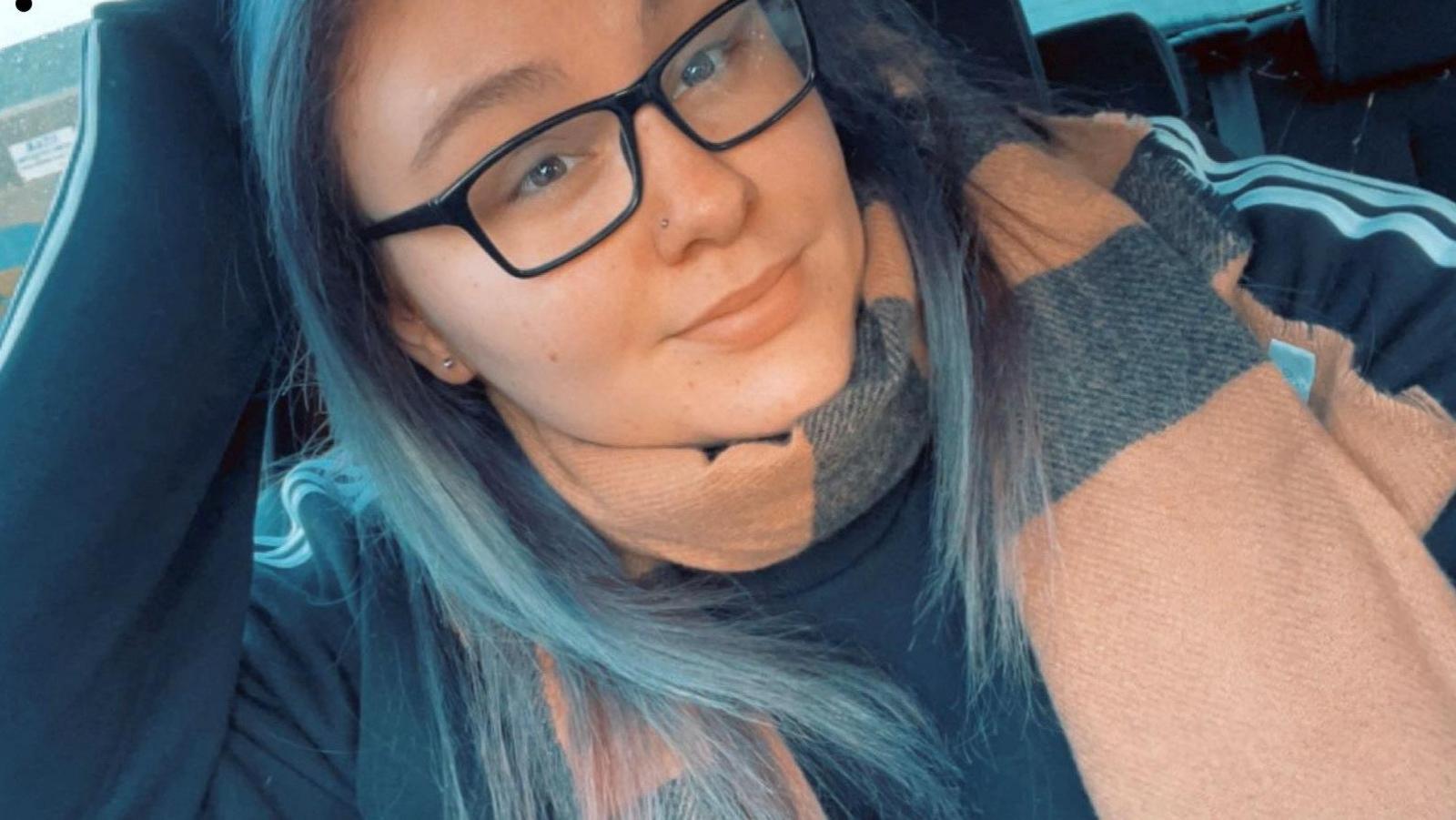
- Published18 March 2024
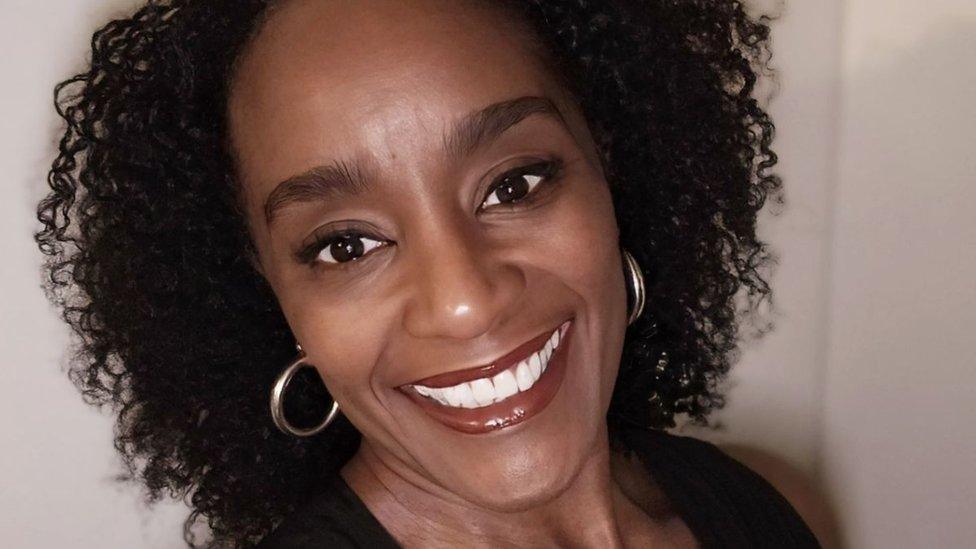
- Published22 March 2024
